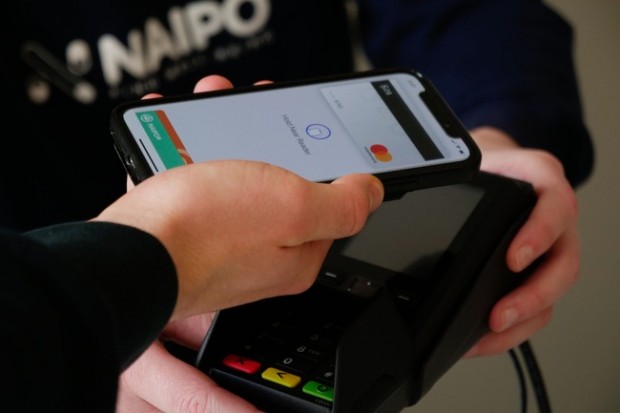Big Tech Firms Push Back Against US Consumer Watchdog's Oversight Plans for Digital Wallets
Big Tech Firms Push Back Against US Consumer Watchdog's Oversight Plans for Digital Wallets
Austin Jay
The Computer & Communications Industry Association (CCIA), representing tech giants like Apple, Google, Amazon, Meta (Facebook's parent company), and X (previously known as Twitter), criticized the US Consumer Financial Protection Bureau (CFPB) proposal aimed at overseeing digital wallet and payment app providers.
The CFPB suggested subjecting these tech companies to bank-like regulations, including supervision by agency examiners, citing concerns about consumer safeguards and compliance with financial laws and privacy protections.
Industry Leaders Voice Concerns Over Proposed Financial Regulations
CCIA's head of regulatory policy, Krisztian Katona, warned that such oversight might impede startups in the industry.
In a comment letter to the CFPB, the lobby group noted the lack of specific identified consumer risks and stressed the collaborative role of non-bank digital providers and banks in serving consumers' needs. The Financial Technology Association, including PayPal (owner of Venmo) and Block Inc (operator of Cash App), echoed these concerns, suggesting existing regulations were adequate and calling for suspending the CFPB's rulemaking process.
They argued that the proposed heavy-handed digital regulation might stifle innovation and didn't adequately acknowledge the collaborative nature between banks and non-bank entities in serving consumers' interests.
Meanwhile, the House Financial Services Committee chairman, Representative Patrick McHenry of North Carolina, acknowledged specific concerns regarding the proposal's potential effects, he argued that by limiting non-banks ability to deliver vital products and services relied on by both consumers and small firms alike, it risked reducing access to necessities commonly utilized by many.
He warned that such limitations could reduce choices and competition within the payments system.
As revealed by PYMNTS, the CFPB's plan aims to oversee 17 new entities involved in approximately 12.8 billion transactions in 2021, totaling an estimated value of $1.7 trillion. These companies represent about 88% of known transactions within the non-bank sector, signaling a significant regulatory expansion by the CFPB.
The research conducted by PYMNTS Intelligence and Nuvei highlights the increasing trend of using mobile wallets for in-store purchases, with a noteworthy 9% increase observed year over year. A significant shift in customer payment preferences is evident in the fact that 59% of American consumers now rank mobile wallets as their preferred alternative purchasing method.
Also Read: Google Settles Antitrust Allegations With States For $700M
New Jersey Officials Seek CFPB Aid in Strengthening Digital Payment Oversight
Officials highlight challenges consumers face when seeking assistance with digital payment app issues, citing difficulty in receiving prompt customer service responses. They anticipate increased oversight from the CFPB will bolster consumer protection regulations in New Jersey.
The Department of Banking and Insurance monitors non-bank digital platforms but lacks comprehensive oversight.
This move aims to equip New Jersey regulators with enhanced tools and insights through CFPB examinations to curb unfair, deceptive, or abusive practices in the digital payment market. This action reflects prior engagements; in 2021, New Jersey joined other states in a collective comment letter initiated by Oregon and Idaho, addressing the CFPB's scrutiny of big tech payment platforms.
This collaboration involves states such as California, New York, and the District of Columbia, signaling a widespread effort towards ensuring consumer protection in digital payments.
Related Article: Apple Pay Outage Disrupts IOS Users: 5-Hour Payment Impact, Smartwatch Sales
most read
related stories
more stories from News
-
Moondrop's MIAD 01 Smartphone Hits the High Notes with Dual Audio Jacks and High-Fidelity DACs
Discover the future of smartphone audio with Moondrop's MIAD 01. Explore its dual audio jacks and premium DACs in this in-depth review. Ready to elevate your music experience? Read now!
ernest hamilton -
Android Improves Security With New AI That Will Listen to Your Calls, Detect Scam Callers
Unveiling Android's AI evolution with Gemini integration, Discover how AI is poised to combat scams and revolutionize security. Stay informed and secure!
ernest hamilton -
Samsung Galaxy’s ‘The Knox Journals’ Lead the Charge in Securing Privacy of Your Data
Discover how Samsung's innovative Knox Journals are revolutionizing user privacy and data control. Learn how cutting-edge features empower users to take control of their devices and safeguard their personal information.
ernest hamilton -
Google I/O 2024 Takes Center Stage with Gemini AI and Android 15 Teasers
The latest AI breakthroughs unveiled at Google I/O 2024, from Project Astra's revolutionary AI assistance to Gemini integration in Google Workspace and Android 15 innovations. Dive into the future of technology with seamless AI experiences.
ernest hamilton -
Google Previews Advanced AI Camera Prototype Ahead of I/O 2024
Google teases a new AI camera feature ahead of I/O 2024, offering real-time contextual recognition and voice interaction on Pixel devices. Discover how this innovative technology enhances your mobile experience.
ernest hamilton -
iPhone 16 Pro Rumored to Feature Larger Display, Periscope Camera, and A18 Chipset
Discover the latest insights into Apple's highly anticipated iPhone 16 Pro, from its innovative display and camera advancements to powerful performance and software integration. Stay informed as anticipation builds for the official unveiling.
ernest hamilton -
Smaller, More Efficient Devices Transforms Wireless Technology with Phononics Breakthrough
Discover how a groundbreaking breakthrough in phononics is poised to revolutionize wireless technology, making devices smaller and more efficient. Explore the potential of giant phononic nonlinearities and their implications for consumer electronics. Dive into the future of connectivity today!
ernest hamilton -
Apple's Next Move: Partnering with OpenAI to Bring Advanced AI Capabilities to iOS 18
Explore the potential impact of Apple's collaboration with OpenAI on iOS 18. From enhanced messaging to smarter voice assistants, dive into the future of AI-powered experiences. Stay informed—read on
ernest hamilton













